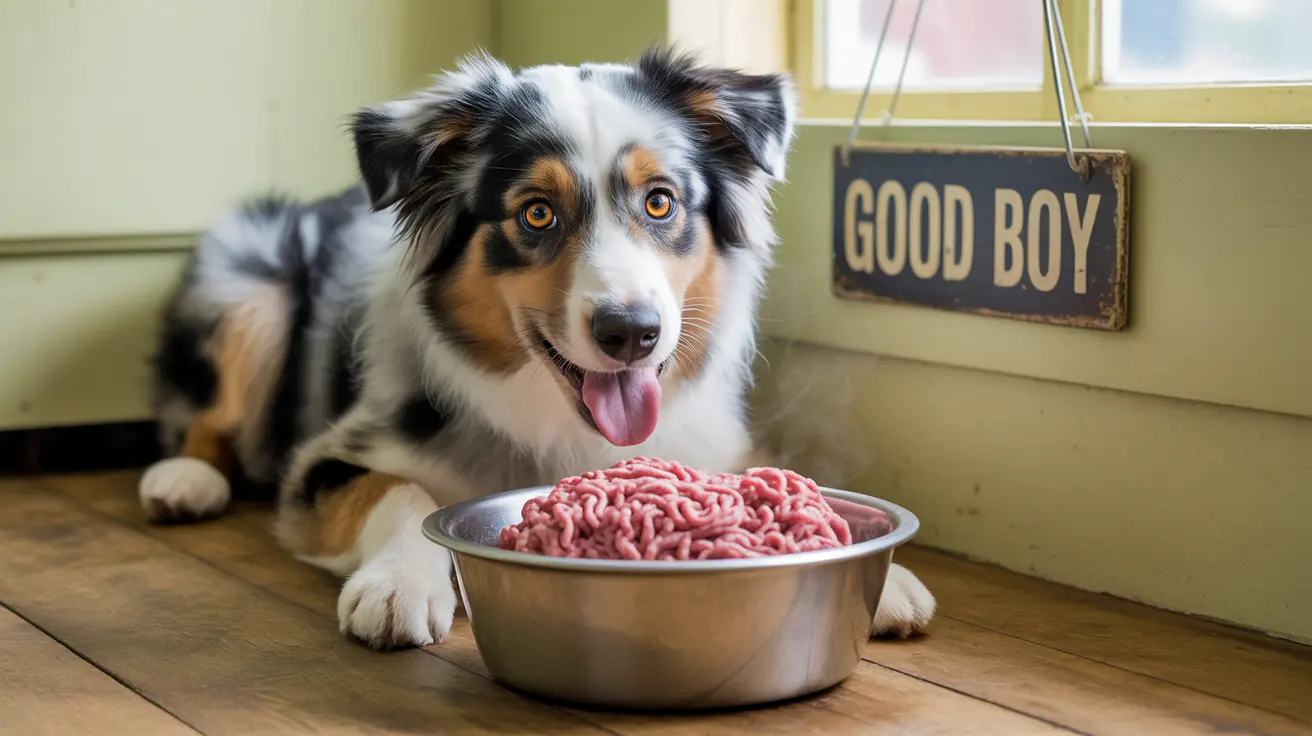The Nutritional Value of Ground Beef for Dogs
Ground beef offers substantial nutritional benefits for dogs when incorporated properly into their diet. It's rich in high-quality protein, containing approximately 19-28.5 grams of protein per 100 grams, depending on the lean-to-fat ratio. This protein is essential for maintaining healthy muscles, supporting immune function, and promoting overall growth and development.
- Essential amino acids
- Iron for healthy blood cells
- Zinc for immune support
- B-vitamins for energy metabolism
- Healthy fats for coat and skin health
Proper Preparation Methods
The way you prepare ground beef for your dog significantly impacts its safety and nutritional value. Always follow these guidelines:
- Cook the meat thoroughly to eliminate harmful bacteria
- Drain excess fat to prevent digestive issues
- Avoid adding seasonings, salt, or oils
- Let it cool completely before serving
Choosing the Right Type of Ground Beef
When selecting ground beef for your dog, opt for lean varieties with at least 80% lean meat. Grass-fed beef is particularly beneficial, offering higher levels of omega-3 fatty acids and essential nutrients compared to grain-fed alternatives. However, the most important factor is ensuring the meat is fresh and from a reliable source.
Serving Size and Frequency
Portion control is crucial when feeding ground beef to dogs. The appropriate amount depends on your dog's size, age, activity level, and overall diet. As a general rule:
- Small dogs (under 20 lbs): 1-2 tablespoons per serving
- Medium dogs (20-50 lbs): 2-3 tablespoons per serving
- Large dogs (over 50 lbs): 4-5 tablespoons per serving
Potential Risks and Precautions
While ground beef can be beneficial for dogs, there are several important considerations:
- Raw ground beef may contain harmful bacteria
- High-fat content can lead to pancreatitis
- Excessive portions may cause weight gain
- Should not be the sole protein source in diet
Incorporating Ground Beef into Your Dog's Diet
Ground beef works best as part of a balanced diet rather than a complete meal replacement. Consider these approaches:
- Mix with regular dog food as a topper
- Use as a special treat or training reward
- Combine with dog-safe vegetables and rice for homemade meals
- Include as part of a veterinarian-approved diet plan
Frequently Asked Questions
Can dogs safely eat ground beef, and how should it be prepared?
Yes, dogs can safely eat ground beef when it's thoroughly cooked, drained of excess fat, and served plain without seasonings or additives. Always cook the meat completely to eliminate harmful bacteria.
Is lean or grass-fed ground beef better for my dog's health?
Grass-fed lean ground beef is optimal for dogs as it contains higher levels of beneficial nutrients, including omega-3 fatty acids and antioxidants. However, any lean ground beef (80% lean or higher) is suitable when properly prepared.
What are the risks of feeding raw ground beef to dogs?
Raw ground beef poses significant risks including exposure to harmful bacteria like Salmonella, E. coli, and Listeria. It may also contain parasites and antibiotic-resistant bacteria that can affect both dogs and humans.
How much ground beef can I feed my dog without causing digestive issues or weight gain?
The amount depends on your dog's size and overall diet. Start with small portions (1-2 tablespoons for small dogs, 2-3 for medium, 4-5 for large) and monitor for any digestive issues. Adjust portions based on your dog's response and maintain their ideal body weight.
Can ground beef alone provide a complete diet for my dog?
No, ground beef alone cannot provide all the nutrients your dog needs. Dogs require a balanced diet including various proteins, carbohydrates, vitamins, and minerals. Ground beef should be part of a complete diet, not the sole component.
Conclusion
Ground beef can be a healthy addition to your dog's diet when properly prepared and served in appropriate portions. Remember to always cook it thoroughly, avoid seasonings, and consider it as part of a balanced diet rather than a complete meal replacement. Consult with your veterinarian about incorporating ground beef into your dog's specific dietary needs.






